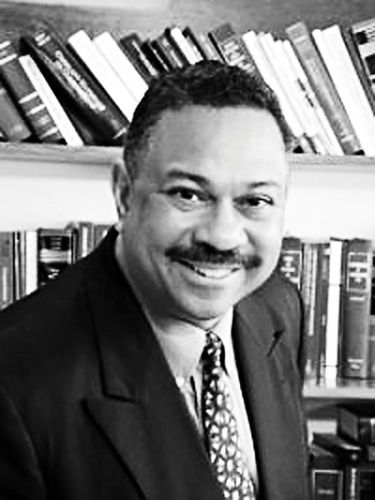Mitchell Crusto’s “City that Care Forgot” — his beloved New Orleans — was washed away with the ebbing tide of Hurricane Katrina in 2005.
In a contributing chapter to the soon-to-be-released book, “Hurricane Katrina: America’s Unnatural Disaster”, Crusto, a Loyola law professor, discusses the continuing issues connected to the storm.
The book is a collection of essays examining the role of race and the government in the city’s response to the hurricane.
Crusto’s chapter, titled “Do You Know What it Means to Miss New Orleans?” is told in the format of letters to a mother. The mother he writes to, however, is New Orleans.
“It started out as memoirs of my Katrina evacuation experience. Part of it was personal reflection. Part of it was therapeutic,” Crusto said. “It’s remorseful. What happened after Katrina is definitely remorseful.”
Crusto describes the role of the media in covering the immediate aftermath and the government’s inability to adequately address the needs of the people.
“Some of the (media’s) coverage was helpful, but most of it exploited you and your family of citizens, and did not tell the truth,” he states in the chapter. “The truth was that Katrina was not about a hurricane or a natural disaster. Katrina is about the failures of the levee system around you and the failed politics before, during, and after Katrina.”
Yet the chapter extends beyond the immediate aftermath of the hurricane. Crusto addresses the issues that are still prevalent in New Orleans.
Among the matters discussed were racism in politics.
“I believe that all levels of government have the legal and moral responsibility to protect the integrity of each and every individual,” he states. “Racism of all kinds can be eradicated with courage, leadership and example, but not by eliminating “race” as a political criterion.”
Crusto was motivated to write the essay by his anger toward the inadequate government response, he said.
“The failure (of the government) to effectively work with people to provide a true source of relief is a form of frustration,” he said.
In the closing part of his chapter, Crusto reflects on the dualistic nature of New Orleans.
“Something has died in this tale of two cities, the City That Care Forgot and the City of Mardi Gras Affluence. The latter is indeed alive and will continue to live in good health.
“The former, the city that I know and love, is dead and gone forever,” he said.
Crusto hopes the book will motivate the government to “fashion a response to people’s ongoing needs.”
“It’s important for people who have been through a disaster to have a voice,” he said.
Masako Hirsch can be reached at mmhirsch@loyno.edu.






